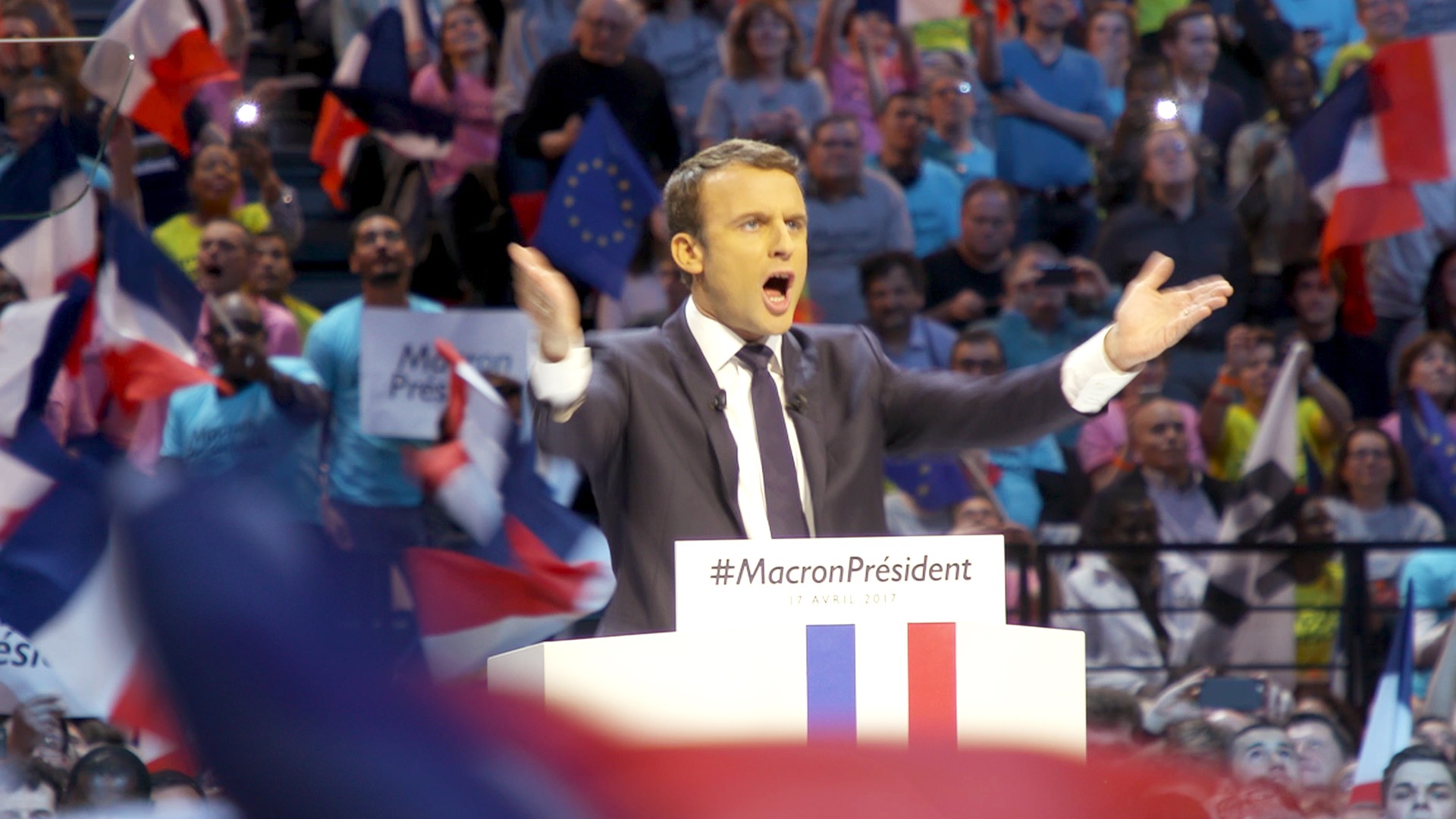Photo via Wikimedia Commons.
Beneath the veneer of his resounding victory, Emmanuel Macron has inherited a polarized country. Only a quarter of the French electorate supported his reformist agenda, and his victory is regarded by many as more of a rejection of an increasingly powerful National Front. But the youngest elected president in French history showed immense character and determination throughout his campaign to enter the Elysée.When he launched a political movement a year ago that emphasized democratic revival, social justice, and economic efficiency, establishment parties sneered. How could a 39-year-old former investment banker backed by a young political party with no local elected officials win the presidency? The idea was out of the ordinary but his quest to reshuffle French politics seduced millions.Labor and education were the pillar issues of Macron's platform. He ran as the candidate who would finally curb the high unemployment rate that has been crippling the French economy for decades. Forty percent of job seekers haven't found work in over a year. The last time France's unemployment rate was below seven percent, Ronald Reagan was President of the United States.Since then, long-term unemployment has swelled. Stubbornly high jobless figures have made Macron's predecessor François Hollande the first incumbent not to seek reelection and the least popular president of the Fifth Republic.Macron's understanding of the future of work and the digital economy has received praise from countless economists. He believes that France's lingering and outdated welfare state model is hampering the progress of an increasingly freelance workplace. Fierce opposition already awaits. Left-wing parties and unions have already held protests against his plans to "uberize the economy", leaving him no grace period.
Check out some more video from VICE:
Of course, Macron has faced stiff opposition before. In July 2015, the then young Minister of the Economy in Hollande's socialist government introduced a piece of legislation to deregulate shopping hours and protected professions (notaries, doctors, cab drivers, etc.). Hardliners and backbenchers in his own camp rejected it while demonstrations took place in city centers against the "recommodification of labor".President Macron's flagship piece of legislation is profound labor market reform. He will submit a bill to parliament this summer, and has already announced he would govern with executive orders if his party doesn't win a majority. He wants to realign France's increasingly dualized labor market in which highly educated graduates find coveted long-term contracts called CDI or "contrats à durée indeterminée," while low-skilled workers alternate between short-term contracts and periods of unemployment.He has vowed to give 15,000 euros in public subsidies to companies hiring young residents of areas identified as "priority neighborhoods," mostly located on the outskirts of cities . He has also planned to reallocate most public budgets for development and skills training to outsiders seeking to participate in the economy rather than to well-established insiders.Macron is a renowned proponent of supply-side economics, holding that high labor costs discourage businesses – especially small ones – from hiring. He vows to liberalize the labor market and slash corporate taxes to encourage employment. A staunch advocate of "flexisecurity" – a Scandinavian approach that combines flexible labor markets with generous social security – he wants to promote entrepreneurship and career advancement by allowing self-employed people and workers who resign from their jobs to claim unemployment benefits. He has also hinted at breaking away from a longstanding socialist tradition by giving companies more of a say in organizing the 35-hour work week.During his campaign, Macron made primary school reform his absolute priority. He agrees that unequal opportunities in education are the root cause of France's sluggish social mobility. Aware of the reality that inequalities emerging in primary school carry on into secondary education and sentence thousands to academic failure, Macron is preparing a policy package akin to the American "No Child Left Behind" Act to ensure that children entering middle school acquire fundamental literacy, numeracy and ICT skills.He plans to shrink primary school classes (maximum of 12 students) in "priority education zones", located principally in poor suburban and rural neighborhoods. Macron wants to take advantage of France's ill-fated long school holidays to reduce dropout rates, setting up mandatory training sessions and refresher courses in all subjects for failing students in grades one through nine.He also argues that general high school curricula are ill-equipped to prepare young people for the future and wants to restore vocational training and apprenticeships in high school. He also wants to change how teaching resources are allocated.Under the current system, teachers beginning their careers accumulate points that would later enable them to teach in private schools and provincial towns. Some schools in turn inherit inexperienced teachers who lack the training to mentor potentially vulnerable students. Macron has already unveiled plans to transfer between six and twelve thousand seasoned teachers to priority education zones, and add 5,000 first-grade teaching positions.Scolded by the right for his wishy-washy stances on foreign policy and security, criticized by the left for his conservative economic policies, and attacked by the far right for his defense of European federalism and multiculturalism, Emmanuel Macron has a narrow path to fulfill the mandate that was conferred upon him by the French people.His election reassured financial markets which feared the disintegration of the European Union. The foreign press calls him the "French Trudeau" for his charm and progressive values. Even Donald Trump lauded his triumph via Twitter.Europhiles have portrayed Macron as the progressive bulwark against populism. Their prayers have been answered. But if he fails to deliver change and uplift French society, a far-right takeover looms down the road.
Advertisement
Check out some more video from VICE:
Advertisement

Of course, Macron has faced stiff opposition before. In July 2015, the then young Minister of the Economy in Hollande's socialist government introduced a piece of legislation to deregulate shopping hours and protected professions (notaries, doctors, cab drivers, etc.). Hardliners and backbenchers in his own camp rejected it while demonstrations took place in city centers against the "recommodification of labor".President Macron's flagship piece of legislation is profound labor market reform. He will submit a bill to parliament this summer, and has already announced he would govern with executive orders if his party doesn't win a majority. He wants to realign France's increasingly dualized labor market in which highly educated graduates find coveted long-term contracts called CDI or "contrats à durée indeterminée," while low-skilled workers alternate between short-term contracts and periods of unemployment.He has vowed to give 15,000 euros in public subsidies to companies hiring young residents of areas identified as "priority neighborhoods," mostly located on the outskirts of cities . He has also planned to reallocate most public budgets for development and skills training to outsiders seeking to participate in the economy rather than to well-established insiders.Macron is a renowned proponent of supply-side economics, holding that high labor costs discourage businesses – especially small ones – from hiring. He vows to liberalize the labor market and slash corporate taxes to encourage employment. A staunch advocate of "flexisecurity" – a Scandinavian approach that combines flexible labor markets with generous social security – he wants to promote entrepreneurship and career advancement by allowing self-employed people and workers who resign from their jobs to claim unemployment benefits. He has also hinted at breaking away from a longstanding socialist tradition by giving companies more of a say in organizing the 35-hour work week.
Advertisement
